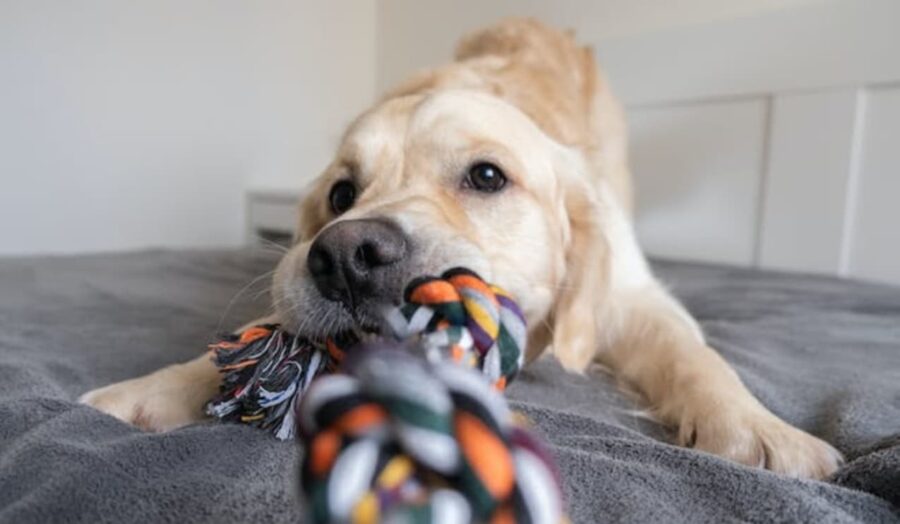
Do dogs lose teeth? All you need to know
Find out if dogs do lose teeth. Grasping this inherent cycle and supporting your pet during this phase is crucial for their dental well-being.

Dogs, our beloved companions, go through various stages of development similar to humans. One of these developmental phases includes losing their teeth. Much like humans, dogs also have baby teeth that eventually give way to their adult set. Understanding this process is crucial for every pet owner to ensure their furry friend’s dental health and well-being.
ALSO READ: Can dogs sense a tsunami before it happens?
THE TEETHING PROCESS:
PUPPYHOOD:
Just like human infants, puppies are born without teeth. Around three weeks old, they start getting their baby teeth, commonly known as deciduous teeth. By the time they’re six to eight weeks old, most puppies have a full set of these tiny teeth.
ALSO READ: Is tea safe for dogs to consume?
TRANSITION TO ADULT TEETH:
Between three to six months of age, puppies begin the transition to their permanent teeth. During this time, the baby teeth loosen and fall out, making way for the incoming adult teeth. This process is entirely natural and is seldom noticeable by pet owners.
ADULT TEETH:
By the time a dog is six to seven months old, they should have their full set of 42 adult teeth. These teeth are stronger and more suited for their adult life, comprising incisors, canines, premolars, and molars.
ALSO READ: A Guide to Safely Cleaning Your Dog’s Ears
SIGNS OF TOOTH LOSS:
It’s essential to be attentive during this teething phase. You might notice some signs indicating your pup is losing its baby teeth:
- Increased Chewing: Puppies may chew more to alleviate discomfort from teething.
- Blood Spots: You might see small blood spots on toys or around the mouth due to loose teeth.
- Missing Teeth: Occasionally, you might find tiny baby teeth around the house, dropped by your pup.
DENTAL CARE FOR DOGS:
Maintaining proper dental hygiene is vital for your dog’s overall health. As your pup transitions from baby to adult teeth, it’s an ideal time to introduce good dental habits:
REGULAR BRUSHING:
Start early with gentle brushing using a dog-specific toothbrush and toothpaste. Gradually introduce this routine to help prevent plaque buildup and maintain healthy gums.
DENTAL CHECK-UPS:
Regular veterinary check-ups should include dental examinations. Your vet can detect any issues early on and advise on dental care specific to your dog’s needs.
CHEW TOYS AND DENTAL TREATS:
Providing appropriate chew toys and dental treats helps alleviate teething discomfort and can aid in keeping their teeth clean.
CONCERNS AND WHEN TO SEEK HELP:
While the process of losing baby teeth is usually smooth, there are instances when complications arise:
- Retained Baby Teeth: Sometimes, baby teeth don’t fall out naturally, leading to misalignment or dental problems. Your vet might need to extract retained baby teeth.
- Excessive Bleeding or Pain: If you notice excessive bleeding, swelling, or your dog seems to be in significant discomfort, consult your vet promptly.
CONCLUSION:
Yes, dogs do lose teeth! Understanding this natural process and supporting your pup through it is essential for their oral health. Keep an eye out for signs of teething, maintain good dental care practices, and seek professional help if any concerns arise. A healthy set of teeth contributes significantly to your dog’s overall well-being and happiness.
Remember, a little extra care during this stage can pave the way for a lifetime of healthy smiles and wagging tails!
Artificial Intelligence assisted in compiling this article.
